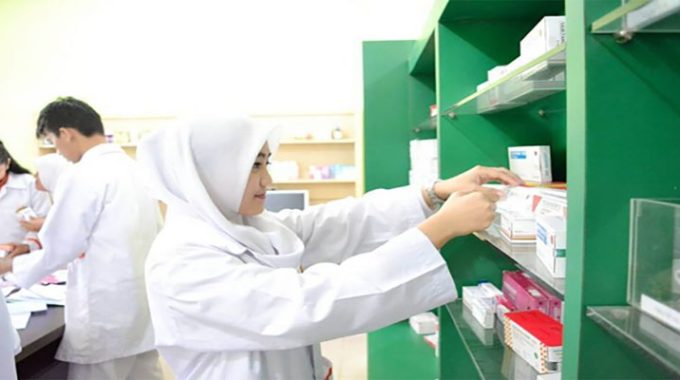In the realm of healthcare, the role of pharmacists extends far beyond the mere dispensation of medications. One of their critical responsibilities involves understanding and managing the toxic effects of drugs. pafikotakebumen.org This aspect of their work is essential for ensuring patient safety and optimizing therapeutic outcomes.
The Importance of Studying Toxic Effects
Pharmacists study toxic effects to anticipate, identify, and mitigate adverse reactions associated with drug use. This encompasses a broad spectrum of activities, from recognizing symptoms of toxicity to implementing strategies to prevent or counteract harmful effects. Their expertise is crucial in preventing drug-related complications and ensuring that medications contribute positively to patient health.
Mechanisms of Drug Toxicity
Understanding the mechanisms behind drug toxicity is a core component of pharmacists study toxic effects. Drugs can cause adverse effects through several mechanisms:
- Pharmacodynamic Toxicity: This occurs when a drug interacts with its target receptor in a way that produces unintended effects. For example, high doses of anticoagulants can lead to excessive bleeding. Pharmacists must understand these interactions to adjust dosages and prevent adverse outcomes.
- Pharmacokinetic Toxicity: This type of toxicity arises from the body’s handling of the drug. Factors such as altered metabolism or impaired excretion can lead to drug accumulation and toxicity. Pharmacists study these processes to identify potential risks and manage therapy effectively.
- Idiosyncratic Reactions: These are unpredictable reactions that occur in a small subset of patients due to genetic or immune system variations. While these reactions are rare, they can be severe. Pharmacists monitor for these unusual responses and adjust treatments accordingly.
- Allergic Reactions: Some individuals may have hypersensitivity to certain drugs, resulting in allergic reactions. Pharmacists need to be aware of these possibilities and provide guidance on alternative therapies or emergency interventions.
Assessing and Managing Toxicity
The assessment and management of drug toxicity involve several key steps, all central to pharmacists study toxic effects:
- Risk Assessment: Pharmacists evaluate patients’ medical histories, current medications, and health conditions to assess the risk of toxicity. This includes understanding potential drug interactions and the patient’s ability to metabolize and excrete medications.
- Monitoring and Detection: Continuous monitoring is essential for identifying early signs of toxicity. Pharmacists use various tools and techniques, including laboratory tests and clinical assessments, to detect adverse effects before they become severe.
- Intervention Strategies: Once toxicity is detected, pharmacists implement intervention strategies. This may involve adjusting drug dosages, switching to alternative medications, or providing antidotes. For instance, the administration of activated charcoal can be used in cases of acute overdose to reduce drug absorption.
- Patient Education: Educating patients about the potential side effects of their medications is another critical aspect. Pharmacists provide guidance on recognizing symptoms of toxicity and what actions to take if they occur. This empowers patients to manage their health proactively and seek help when needed.
Case Studies and Real-World Applications
The real-world implications of pharmacists study toxic effects are evident in numerous case studies and clinical scenarios:
- Anticoagulant Therapy: Patients on anticoagulants like warfarin require careful monitoring for signs of bleeding. Pharmacists play a vital role in managing these patients by adjusting dosages based on regular blood tests and providing guidance on avoiding interactions with other medications.
- Chemotherapy: Oncology pharmacists must navigate the complexities of chemotherapy drugs, which can cause severe toxicities. They monitor patients for side effects such as nausea, organ damage, and bone marrow suppression, adjusting treatment plans as necessary.
- Over-the-Counter Medications: Even common over-the-counter drugs can cause toxicity if not used properly. Pharmacists educate patients on safe usage and potential interactions with prescription medications.
Advances in Toxicology and Pharmacist Involvement
The field of toxicology is continually evolving, with new research and technologies enhancing the understanding of drug toxicity. Pharmacists study toxic effects not only through traditional methods but also by engaging with cutting-edge advancements:
- Pharmacogenomics: This emerging field explores how genetic variations affect drug metabolism and toxicity. Pharmacists use this information to tailor therapies to individual genetic profiles, reducing the risk of adverse effects.
- Advanced Screening Technologies: Innovations in screening and diagnostic technologies allow for more precise detection of toxic effects. Pharmacists leverage these tools to improve patient monitoring and intervention strategies.
- Collaborative Care Models: Pharmacists increasingly work in interdisciplinary teams with physicians, nurses, and other healthcare professionals. This collaborative approach enhances the management of drug toxicity and improves patient outcomes.
In summary, pharmacists study toxic effects to safeguard patient health and optimize medication therapy. By understanding the mechanisms of drug toxicity, assessing risks, managing adverse reactions, and staying abreast of advancements in the field, pharmacists play a crucial role in the healthcare system. Their expertise ensures that medications are used safely and effectively, ultimately contributing to better patient outcomes and enhanced quality of care.














